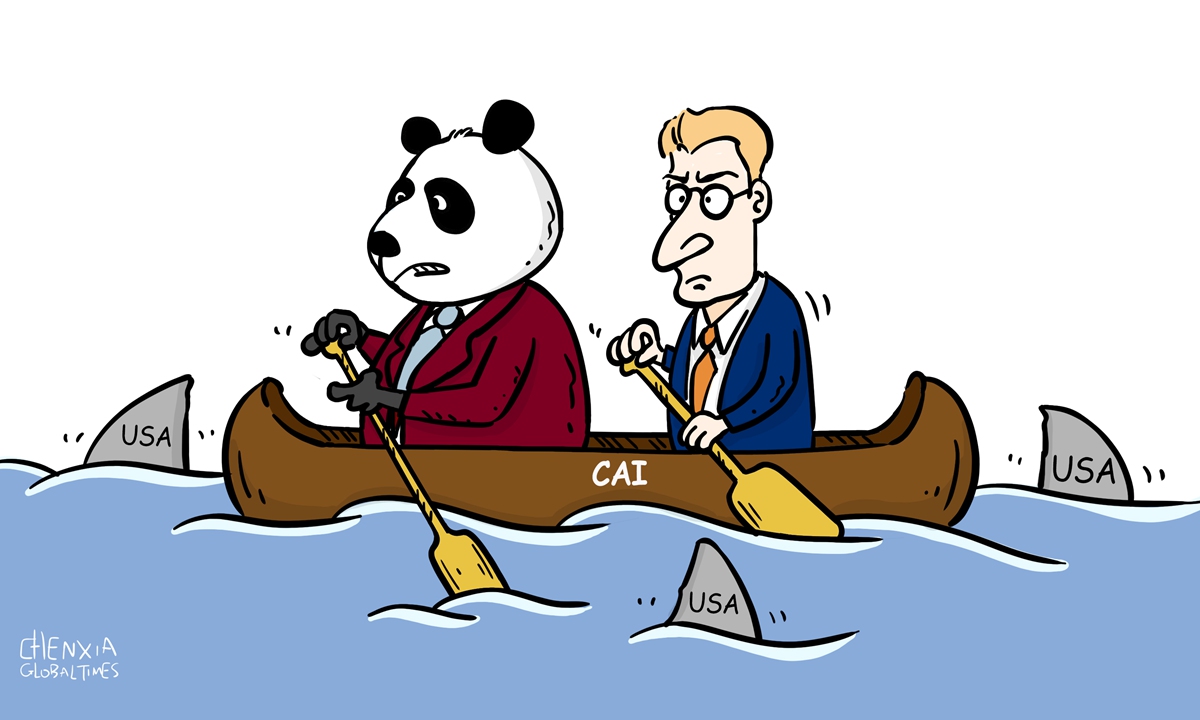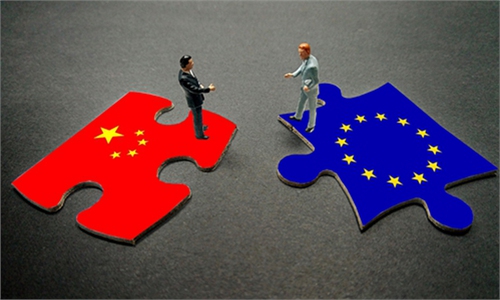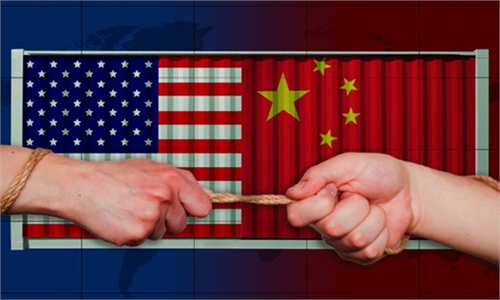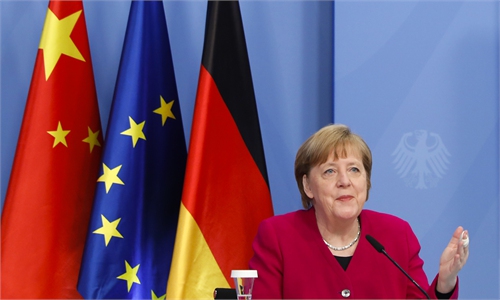COMMENTS / EXPERT ASSESSMENT
Politicizing China-EU investment deal would be a mistake

Illustration: Chen Xia/GT
After the EU's trade chief Valdis Dombrovskis aroused widespread concern over the fate of the China-EU Comprehensive Agreement on Investment (CAI) by reportedly suggesting that Brussels has suspended some efforts in ratifying the deal, an EU spokesperson on Wednesday sought to clarify the issue.
"The agreement needs to be now legally reviewed and translated before it can be presented for adoption and ratification. However, the ratification process of the CAI cannot be separated from the evolving dynamics of the wider EU-China relationship," the spokesperson said, while suggesting the prospects for the CAI's ratification will depend on how Chinese sanctions against the EU will "evolve."
Notably, the spokesperson did not say that the EU has halted efforts in ratifying the CAI, as its trade chief reportedly did a day ago. Dombrovskis was cited by some media outlets on Tuesday as suggesting that the EU has suspended some efforts to ratify the CAI, because with the sanctions, "the environment is not conducive for ratification of the agreement."
However, the similar comments on the sanctions are a clear indication that the EU is still making the mistake of trying to politicize the massive investment deal.
First and foremost, it should be noted that it is the EU that first launched sanctions against China without any reasonable reason, and China had only taken reasonable and justified countermeasures. If the EU let this political issue hijack the CAI ratification process, it would be a step further in the wrong direction.
The statements from the EU about the ratification of the CAI also showed that some people within the bloc are trying to use China's justified countermeasures as a reason to stop the investment deal. However, to unreasonably associate economic issues with political issues is bound to jeopardize the hard-won results.
Ratifying the CAI as soon as possible is absolutely beneficial to European countries and businesses. The conclusion of the China-EU CAI strengthens the EU's position in the overall WTO reform and major multilateral negotiations. More importantly, if the EU wants to transition toward new energy and tackle the climate change challenge, it needs to cooperate with China. Ratifying and implementing the CAI would boost cooperation in those areas.
Technically speaking, CAI can still be approved by the EU in the second half of the year or the first half of next year. However, the EU has to eliminate some hurdles. On the one hand, the bloc needs to unify inner voices over the issue. On the other hand, the EU needs to overcome US pressure.
After China and the EU concluded negotiations for the deal at the end of last year, Western media continued to question the fate of the deal. Admittedly, the Biden administration's attempt to coerce its allies to confront China has posed great uncertainty to the deal. But European leaders should be clear that it's not in EU interests to follow the US' lead in terms of China policies.
Also, European officials and politicians should be clear that raising difficult questions over the China-EU CAI cannot solve Europe's own problems. And instead of politicizing the deal, the EU should take more practical actions to push forward the ratification of the deal so the agreement can be implemented soon, which is beneficial for both sides and the world economy.
Although some EU politicians are making varied voices, major European leaders have expressed intention to push an early ratification. Recent dialogues between Chinese and European leaders have also indicated that China and the EU have an understanding to push for the agreement to be approved as soon as possible.
The author is Jean Monnet chair professor and director of the Center for EU Studies at Renmin University of China. bizopinion@globaltimes.com.cn



